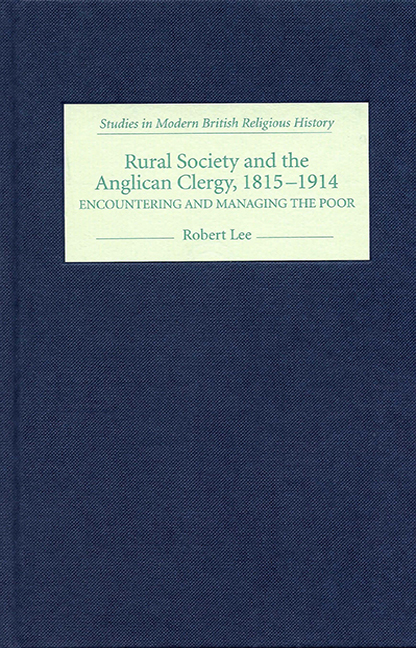Book contents
- Frontmatter
- Contenst
- List of illustrations
- Preface
- List of abbreviations
- Introduction
- Part I Encountering the Poor
- 1 Tithes and ‘Swing’: Encountering unrest
- 2 Restoration: Encounters with popular culture
- 3 Ranters and radicals: Encountering social, religious and political dissent
- Part II Managing the Poor
- Conclusion
- Bibliography
- Index
3 - Ranters and radicals: Encountering social, religious and political dissent
from Part I - Encountering the Poor
Published online by Cambridge University Press: 11 May 2017
- Frontmatter
- Contenst
- List of illustrations
- Preface
- List of abbreviations
- Introduction
- Part I Encountering the Poor
- 1 Tithes and ‘Swing’: Encountering unrest
- 2 Restoration: Encounters with popular culture
- 3 Ranters and radicals: Encountering social, religious and political dissent
- Part II Managing the Poor
- Conclusion
- Bibliography
- Index
Summary
Introduction
A striking feature of the landscape of rural Norfolk is the number of Nonconformist places of worship to be found there. A few of these are still in use, some have been converted into private residences, and many more stand on or over the brink of dereliction. Whatever their twenty-first-century fate, they represent a remarkable landscape testimony to something dramatic that stirred in the rural society of nineteenth-century Norfolk before subsiding almost as quickly as it had appeared. In the course of less than 150 years, many Nonconformist chapels moved through the successive stages of demand, conception, design, construction and extension – often in a climate of political opposition and financial constraint – before entering into a rapid spiral of contraction, decline and abandonment.
This chapter considers whether a remarkably widespread and yet dramatically short-lived religious revival really is discernible here, or whether a convulsion of a much more complex type – social, economic and political – is hinted at by these last visible landscape relics.
Any discussion of unrest and political factionalism that is nominally based on religious tension must, however, acknowledge the level of unrest that existed within dissenting groups. The acrimonious split between mainstream Wesleyanism and Wesleyan Reform in 1850, posited mainly on the tension between central and local authority, provides a dramatic illustration of this. The 1851 religious census returns are studded with responses from Wesleyan ministers, recording pitifully small attendances and blaming ‘violent and disgraceful proceedings’ for the destruction of their congregations.
Alan Everett has described how denominations divided ‘as much from the errors of their fellow Dissenters as from those of the established church’, a situation that had been lampooned by the Anglican Rev. Charles Campbell in Conversations with a Ranter. There he described how dissenters, having left the Church of England, made their way from one sect to another, finding some disagreement and disillusionment in each. Campbell concluded that ‘there is no telling where a man will stop’ once he embarked upon dissent. Campbell's Conversations were intended to be satirical, but they do not require a particularly sophisticated reading to reveal some of the political dread that underpinned establishment reactions to Nonconformity. Concerns about where a dissenter might stop ran much deeper than a vague fear that he might leap incontinently from one denomination to the next.
- Type
- Chapter
- Information
- Rural Society and the Anglican Clergy, 1815–1914Encountering and Managing the Poor, pp. 56 - 74Publisher: Boydell & BrewerPrint publication year: 2006



